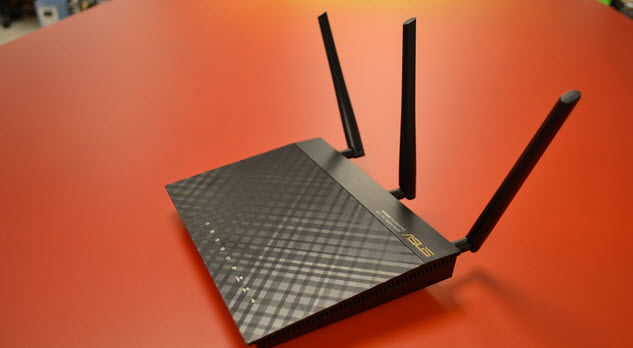In this country, identity theft is one of the fastest growing crimes. According to the FTC, it affects more than 9 million Americans per year. One of the most common ways that criminals gain access to your sensitive information is by tracking your web history through unsecured broadband connections. With this in mind, it’s in your best interest to adopt the following precautions to avoid becoming another statistic. Remember, what may seem like harmless web surfing may really be an open invitation to hackers and internet thieves.
1. Secure Your Wi-Fi Router
 First, let’s cover the basics. An unsecured connection means that anyone with a computer or smartphone can access the internet through your network without entering a password or key code. If your router allows you the option to manage it remotely from the WAN side, it’s best to disable it. The second step is to enable WPA (Wi-Fi Protected Access) or WPA2 encryption. You’ll also be given the option to enable WEP encryption, but the former is preferred assuming your device supports this platform. After encrypting your connection, enable MAC access on your wireless router by finding the address on your computer and then entering it into the MAC filtering field. The last step is to disable SSID (Service Set Identifier) broadcasting. By disabling this identifier, no one will be able to see the name of your network.
First, let’s cover the basics. An unsecured connection means that anyone with a computer or smartphone can access the internet through your network without entering a password or key code. If your router allows you the option to manage it remotely from the WAN side, it’s best to disable it. The second step is to enable WPA (Wi-Fi Protected Access) or WPA2 encryption. You’ll also be given the option to enable WEP encryption, but the former is preferred assuming your device supports this platform. After encrypting your connection, enable MAC access on your wireless router by finding the address on your computer and then entering it into the MAC filtering field. The last step is to disable SSID (Service Set Identifier) broadcasting. By disabling this identifier, no one will be able to see the name of your network.
2. Don’t Use Unencrypted Connections
You’ll often find unsecured connections in coffee shops, libraries, and other public gathering spaces. Although they’re intended to act as a courtesy to customers they come with many of the risks we’ve previously mentioned. In the event that you absolutely need to use a public, unsecured Wi-Fi network, be sure to turn off the computer’s sharing function prior to connection. You can access this (on a Windows PC) by opening the “advanced sharing settings” in the Network and Internet settings. If you’re a Mac user, you can find this function in the System Preferences window.
3. Install an Antivirus
If you’ve already secured your Wi-Fi router, the next level of protection involves installing an antivirus software which we already discussed here (Bitdefender) and here (Kaspersky). There are a number of free programs you can download for protection while surfing the web. Some internet providers will even include a security feature like this in their monthly service. Broadband Expert, an internet provider home service review site, ranks the top companies in the industry based on price, coverage, and security.
4. Choose Your Password Carefully
What might seem like the most menial task may actually turn out to be a breaking point—for hackers that is. If your password is too easy to crack, you can kiss your privacy goodbye. Choose a password or phrase that is safe yet easy to remember. Also, avoid using alphanumeric-only characters for your passwords.
Recap
When surfing online it’s always a good idea to secure your connection either through WPA or WPA2 encryption. If neither is available, then at the very least enable WEP encryption. Also, make sure to protect your computer with an antivirus or screening software. Typically, your internet provider can offer you this option as part of your broadband service or for a small additional fee. Finally, double check that all your passwords are hard to crack by incorporating a combination of letters, numbers, and symbols.


Comment Policy
Your words are your own, so be nice and helpful if you can. Please, only use your REAL NAME, not your business name or keywords. Using business name or keywords instead of your real name will lead to the comment being deleted. Anonymous commenting is not allowed either. Limit the amount of links submitted in your comment. We accept clean XHTML in comments, but don't overdo it please. You can wrap code in [lang-name][/lang-name] tags.